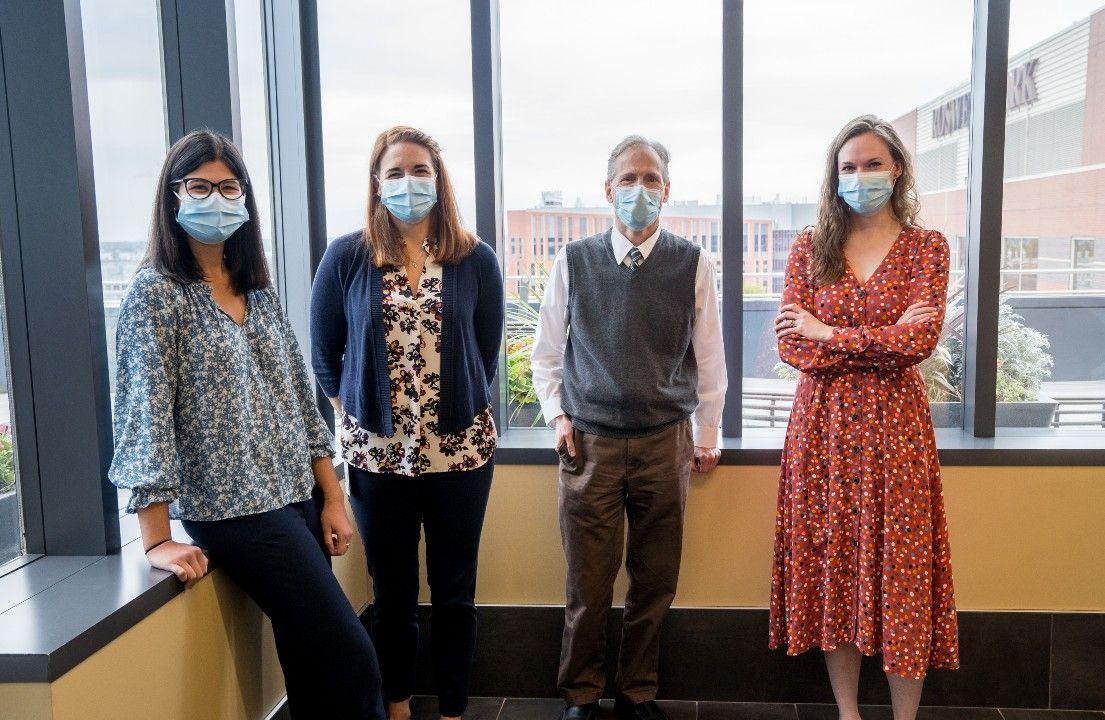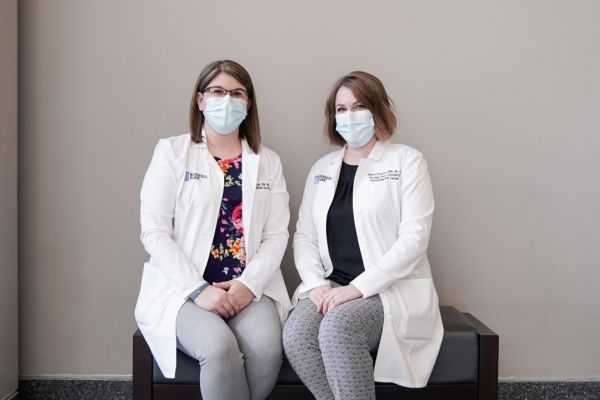What does it mean when a cancer is determined to be hereditary? How can people know whether they carry genes that could increase their risk of being diagnosed with cancer?
The Cancer Genetics team can help shed light on these questions and many others.
“Our main focus is to evaluate patients who may have inherited forms of cancer, where it would make a difference in the management of their disease or the management of their family’s risk,” says Joseph F. Maher, MD, former Director of Clinical Genetics in the Department of Internal Medicine at Roswell Park Comprehensive Cancer Center.
Genetic testing is offered to patients who meet an established set of criteria, which include a strong family history of certain types of cancers like prostate, colorectal, breast, ovarian or pancreas cancer, a cancer diagnosis at a young age, or a diagnosis of a rare cancer type. For patients who do not meet that criterion, they have the option of paying for it out of pocket.
There are formal criteria that guide decisions to recommend genetic testing, something Dr. Maher said he and his team — which includes three genetic counselors and a genetics liaison who helps coordinate with patients — discuss with their patients before any testing is done. “The threshold for some cancers is such that only 2.5% to 5% of patients will test positive for a given mutation,” Dr. Maher said. “That means 95% or more people are expected to test negative if the criteria are being followed.”
The team also tries to underscore the possibility for ambiguous results with patients before testing occurs, to prepare them for what they might not learn.
“Before we do genetic testing, we will do pre-test genetic counseling to determine their risk. Then, after we receive the results, we will do post-test counseling. Typically, we’re looking for a single mutation in a single gene that would explain an increased risk of a given cancer or pattern of cancer in a patient or family.”
Even with a family history, most people aren’t eligible until adulthood to be considered for genetic testing. “There are some hereditary cancer syndromes where you may identify a gene even in early childhood and we need to start screening earlier, but for most of the testing that we do, we wait until adulthood because you wouldn’t do anything different before you’re an adult,” Dr. Maher said.
What to expect
Genetic testing consists of the patient coming in for pre-test counseling, followed by a blood draw and, when the results come in, a follow-up appointment to discuss the results. Dr. Maher prefers to set up the follow-up appointment with his patients at the initial visit, so they know how long they’ll have to wait for results.
The benefit of genetic testing, for some cancer patients, is that treatment can be better tailored from the start to address the challenges associated with their specific cancer. “For a woman with breast cancer, it may help her make decisions, like whether to have a lumpectomy if the genetic test doesn’t show a mutation, compared to a bilateral mastectomy if the test is positive” for a mutation in a high-risk gene such as BRCA1 or BRCA2, he said. “It also affects screening for other cancers, how they’re done and which cancers the person is screened for. Genetic testing can occasionally affect medications as well. There’s a lot of research going on to see what patients might respond to.”
There’s also the so-called Angelina Jolie effect: the actress decided to get genetic testing after her mother died from ovarian cancer after also having fought breast cancer and, upon learning that she also carried a mutation in the BRCA1 gene that put her at higher risk for developing the disease, she decided to have a double mastectomy as a preventive measure.
Never miss another Cancer Talk blog!
Sign up to receive our weekly Cancer Talk e-newsletter.
Sign up!Adding to the knowledge base
Even if a patient’s own results are inconclusive, their results will be recorded and added to the body of information used by cancer researchers to monitor and learn new things about the disease. Take those BRCA1 and BRCA2 traits: once only associated with breast cancer, genetic testing results and continued research has led to a better understanding of how that same mutation is associated with other kinds of hereditary cancers, such as ovarian and prostate. That would not be known if it weren’t for information gathered from patients, Dr. Maher said.
“In an anonymous way, their testing will go into the overall body of information on a given variant,” he said. “Sometimes, if we can get information from other family members, that further allows information on a variant. The information we obtain goes to databases and ultimately makes for more definitive decisions on a given variant.”

